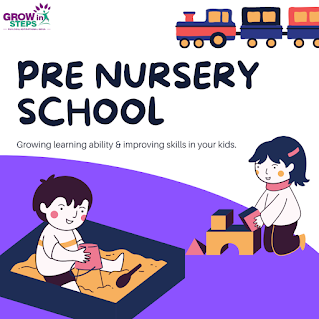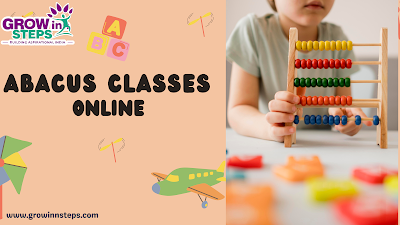The importance of child rearing plays an important role in people's lives. This period can have a great impact on the formation of the personality of the people. Research has shown that most people who have a successful future; Get good education as children. In the family, children live and learn. Children are greatly influenced by family behavior and speech. From their parents, kids learn how to communicate with each other.
 |
| daycare near me |
The difference between nursery and preschool can be significant. On the other hand, due to the importance and value of raising kids, families enroll in educational centers like kindergartens and daycares. The difference between nursery and pre-nursery can be significant.
Difference between nursery and preschool
Many families think that kindergarten and preschool curriculums are the same; Whereas Kindergarten or Nursery is different from Preschool. Playschool is an educational and care center for infants and toddlers; While Preschool is for children between the ages of three and six. The difference between nursery and preschool is that nursery is more formal.
The main purpose of preschool is to teach children painting and coloring and
social activities as well as games and entertainment; In preschool, the main
objective is to teach basic lessons and concepts and prepare children for
school.
The difference between nursery and preschool is that in nursery children are
taught different subjects. for children aged four to seven attending preschools
run by other schools; It will be a better environment and location; Because
children get familiar with the school environment and they do not experience
stress and anxiety while entering the school. The difference between
kindergarten and childcare is that kindergarten is more formal.
- Nursery is an educational environment in which young children learn the basics of mathematics, language, and morality through play so that they are prepared to take entrance exams for kindergarten into prestigious schools. The difference between nursery and preschool can be significant.
- The atmosphere in preschool is playful and very informal, while nursery is a child's first experience with formal education.
- Since preschool does not have the same educational objectives as nursery, preschool is sometimes held only once a week. Some primary schools are held a few days a week. However, nursery is regularly organized as it is more formal than preschool.
- No preschool training required. But nursery is essential for any child.
Preschool
 |
| preschool near me |
They are staffed by nursery volunteers, not nursery teachers, and are run by private individuals rather than the state or companies.
The difference between nursery and preschool is that in nursery children are
taught different subjects.
How to find the right Preschool? Difference between preschool and playgroup
Although preschool and nursery are different to each other; Similar criteria
can be considered in choosing the right playschool and pre-nursery school.
interrogating children
In the first step, before choosing kindergarten, smart kindergarten and preschool in Delhi, inquire about the child's interest in the new environment and explain the educational settings to the children so that they can become familiar with these educational environments.
Preschool or nursery history | Nursery vs Preschool
Another point to consider when choosing a preschool, daycare, or smart daycare center is the background of the management and their teachers. Research has shown that playschools or nurseries with a longer history provide higher services. In preschool centres, teachers' records are very important; Because in addition to mastering how to teach concepts and content to children, teachers must also be familiar with them so that they can manage the children and classroom well.Don’t miss: Best Preschool in your location
Status and facilities of preschool or nursery
An adequate kindergarten should have adequate facilities for the entertainment and education of the children. Kindergartens and preschools should also have the necessary safety and security for children to attend. In addition, another point to be considered in the selection of kindergarten and preschool is to have a proper cooling and heating system; Because children have a weak immune system and exposure to extreme cold and heat can lead to illness.Use proper training equipment
Uses similar methods to typical preschool or nursery lessons such as painting instruction, social skills, etc.; Whereas in smart kindergarten different methods are used. Smart Kindergarten uses digital tools and equipment to teach children. The use of digital devices has made it easier for children to become familiar with digital devices. The use of digital tools also gives teachers the opportunity to better focus on children's learning process and development. Therefore, another thing that is important in choosing a kindergarten and preschool is to pay attention to the educational methods you have used. Many parents choose nurseries in Delhi that use modern methods to educate their children.
Difference between Daycare and Kindergarten
Day care centers offer developmental programs, and kindergarten schools provide educational programs for children of specific age groups. The teacher-child ratio in day care varies depending on the age groups of the children. In kindergarten programs have one certified teacher and one teacher's assistant for each grade group.In both types of programs, teachers and other staff are required to maintain open communication with parents and to keep parents informed about their child's progress and development.
Opening time
Kindergarten classes are usually based in primary schools
and operate during normal school hours. Kindergarten programs in elementary
schools may have a half-day schedule, with three to four-hour programs
beginning in the morning or afternoon. Alternatively, children may be enrolled
in full-day kindergarten programs. Day care centers offer more extended
operating hours than elementary schools. Some day care centers offer
kindergarten programs with operating hours that extend beyond the normal
opening hours of elementary schools.
Learning Activities
Day care providers conduct age-appropriate developmental
activities for children, while kindergarten teachers structure theme-based
activities to boost children's academic skills. While children are attending
school as part of the kindergarten program, their daily schedule includes core
academic subjects such as math, reading, science, and art. Independent play
time and outdoor activities may be limited compared to day care programs. With
day care programs, teachers organize activities for children to help their
cognitive, social or emotional development, and provide more supervised play
time for children of each age group.
Child Care
Kindergarten programs do not include child care services,
while day care centers focus primarily on offering child care programs for
parents. Child care programs may be early morning or after-school programs, as
well as full-day child care for infants, toddlers, and older children. Although
many kindergarten classes are held in elementary schools, some elementary
schools also offer morning and after-school child care for all enrolled
students, which is separate from kindergarten classes.
Grow In Steps invites parents to experience the warmth and magic through Nursery, Daycare Tour, then we can help you complete the next steps for enrollment after checking the curriculum and enrollment as follows Are:
- Daycare tour
- Application submission
- Tuition Fee, Documentation, and Enrollment





